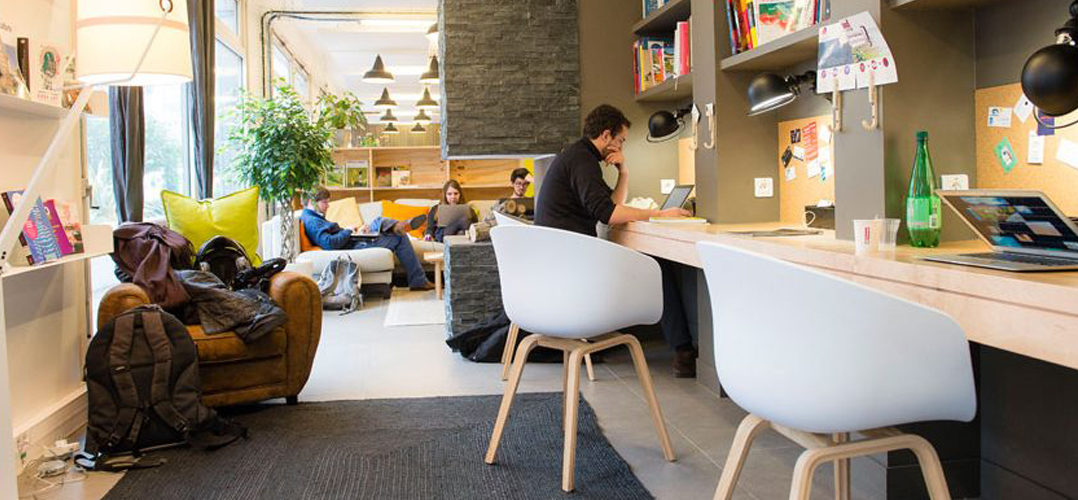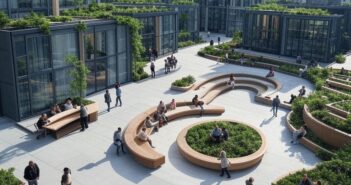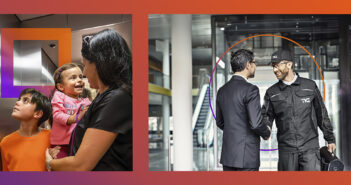As the role of the property developer evolves and new technologies are integrated into construction, there is a strong temptation to make everything smart and connected. Christian Grellier, Director of Innovation at Bouygues Immobilier, highlights the importance in projects of putting services and the customer experience first. Above all, artificial intelligence (AI) must free up time to improve user services.
MIPIMWorld: What transformations are currently underway in the property industry?
Christian Grellier: There is already a change in the scale of projects: we’re moving from buildings to creating districts. We have seen the dysfunctional nature of single-use areas (100% residential areas and business districts) of the 1960s and 1970s. These districts are not pleasant areas to live in and generate a lot of unavoidable commuter traffic. Districts dominated by office buildings are empty at night: the shops and businesses struggle, the infrastructure is underused and energy resources are not shared. In a mixed-use district, energy and parking areas, for example, can be shared, reducing the costs for the community and for our customers. Concierge services serve customers day and night. This change in scale creates added value for everyone. From a technical point of view, as uses change, buildings must become more flexible. The adoption of new technology by the property industry means that use can be evaluated in real time, allowing us to put people back at the centre.
MIPIMWorld: Isn’t there a contradiction in wanting to put people back at the centre while also developing smart, connected buildings?
Christian Grellier: Quite the opposite: in the age of artificial intelligence, we need to anticipate what local services will be required and provide a human presence for our customers. I have no doubt that the more artificial intelligence develops, the more people will become important to business. In professions that require very specific knowledge, like law or medicine, expertise will gradually be incorporated into algorithms. These professions will therefore put greater emphasis on their relationships with customers, providing services with a high degree of added value. The profession will not be devalued for all that; on the contrary, it will be “augmented”. This is also true with respect to the company and to our customers. Before sales and after delivery, lots of services and new professions will improve the customer experience. Positioning our company in this property services market is a key challenge for the years ahead.
MIPIMWorld: What are the specific applications of AI in the building industry?
Christian Grellier: Overall, artificial intelligence will enable us to run buildings better: building management is still basic today. In meeting rooms, the air conditioning and lighting are managed and centralised by the building management system. If changes are made to the layout of the office, it’s a big job to reconfigure the system. In the future, with connected objects and wireless internet, it will be very easy: you’ll just need to change the location sensors. Similarly, it will be possible to streamline the work of operators in the event of a technical issue with the building, because it will be easier to anticipate problems. It will be the building itself which will alert operators and occupants: we will move from emergency operations to predictive maintenance. Instead of a system of access badges, which is very restrictive for users, we are putting in place systems based on number plate recognition or smartphone access. Once these constraints have been removed and these conveniences automated, we can add more value to what we offer our customers.
Because in parallel, online services like Amazon and Uber are becoming highly efficient and users are consequently becoming used to quick, efficient, convenient services. And the level of service to which customers have become accustomed in the digital world, they now expect in the physical world. It’s become a benchmark.
MIPIMWorld: What is the role of a director of innovation in an industry like property development?
Christian Grellier: At Bouygues Immobilier, we created the Innovation Department around a decade ago to anticipate new uses in office, residential and urban developments. Innovation in the property industry can seem counter-intuitive because we work on a slow cycle. The time between when pencil is first put to paper and an apartment is delivered can be around 18 to 24 months. It is tempting to say that we will be able to take advantage of innovations as they emerge on the market, but the uses and expectations of our customers are also changing. It is increasingly important to be able to customise apartments for each customer, as you can do with a car.
The slow pace also forces us to anticipate needs to a greater extent than is done in more reactive industries like telecommunications or media, areas in which Bouygues is also active. In these industries, it is possible to bring new products and services to market very quickly. It’s about identifying new uses and trends, finding potential partners who can help us to do what we are not able to do alone. And if that doesn’t exist, we create ad-hoc structures to tackle these new areas. Examples include Nextdoor for co-working spaces, Aveltys to guarantee building charges, and Embix to develop urban smart grids.
MIPIMWorld: How do you give a building flexibility in terms of usage?
Christian Grellier: In Issy-les-Moulineaux near Paris, we are developing the Sways project, which embodies this flexibility perfectly. The space is generous – 40,000 m2 – and divided into fully flexible offices.
Beyond flexibility, we also consider reversibility. It seems ridiculous to destroy an office building because it is no longer attractive. Might it not be possible to envisage hybrid buildings, including commercial, office and co-living areas, so that use can change over time? We are seeking to avoid creating a patchwork of districts which are becoming obsolete. We need to anticipate the impact offices have on a neighbourhood. In Lyon, we are developing a reversible building project. This will initially be an office building next to the A7 motorway, in a sensitive area. But the city has announced that it is going to downgrade this motorway which follows the Rhône and turn it into an urban boulevard. The appeal of the area will be much higher in a few years, and we will need to provide housing without tearing everything down. If we factor in this flexibility from the beginning, we can take precautionary measures to ensure that the building is easily reversible. We’ll include balconies, windows which open, incoming pipework – all sorts of things which are useless in the context of an office building but essential for a residential one.
MIPIMWorld: A key difficulty in the property industry is creating a community and social links in a new district. How do you approach this challenge?
Christian Grellier: We are in the process of developing concierge services in our districts and offices: a human presence which provides a day-to-day link with everyone who lives in the district and offers basic everyday services. We are also creating events for the community of employees or owners, such as conferences, workshops and so on. Our industry has undergone a complete transformation: the entire building management component has been subcontracted and we are focusing on organising corporate life to improve the performance and wellbeing of employees. The digital transformation (AI, Big Data) is enabling and accelerating this move towards services in the property industry. Technology must remain a means to an end. At the moment, we are promoting the Entre voisins (Between Neighbours) app, which is a social media app for residents.
We started with home automation, in other words creating a remote control for your home to manage amenities (heating, lighting, roller blinds) from a distance. Residents also asked us for a kind of Facebook for the district. And that’s what we put in place, by connecting residents within buildings, apartment blocks and even districts, and integrating commercial businesses, services, transport information, etc. As soon as they move into their new apartment, residents feel at home, they know their neighbours, they can easily find a nanny. Very soon, they form a complete relationship with their home and the area to which they have moved. Here, digital is truly an accelerator for human relationships. We are recreating a village square.



